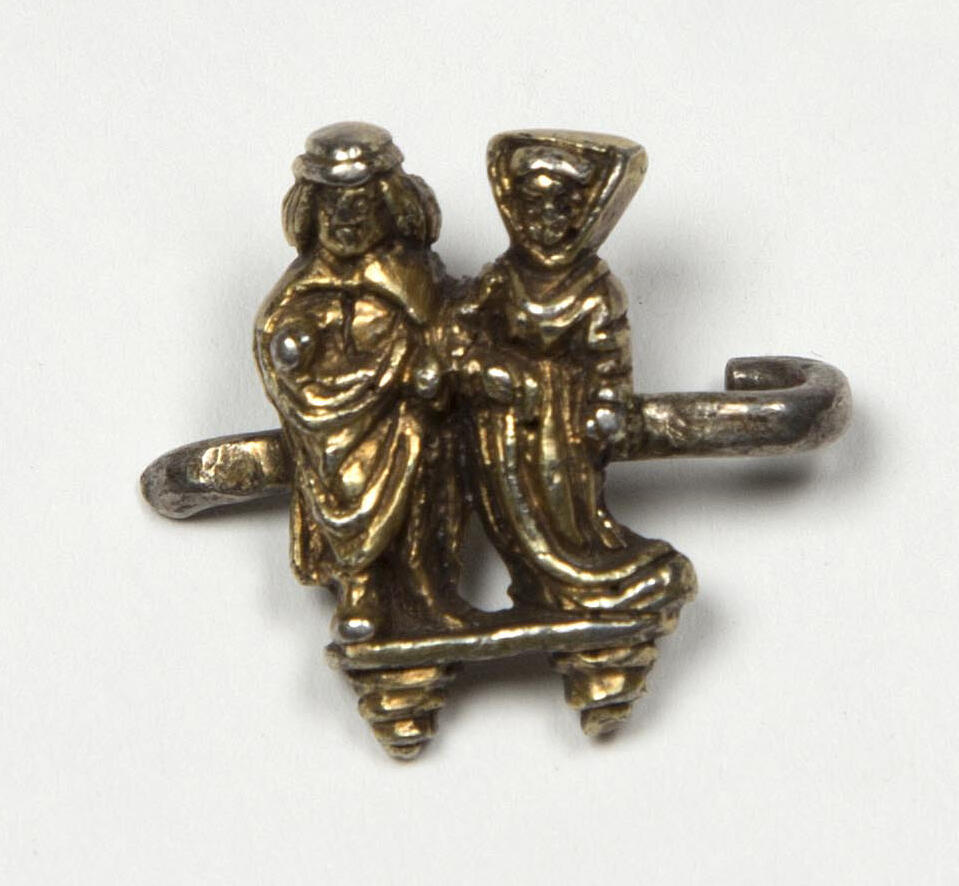The main work in this vitrine is smaller than a postage stamp. The fragment of gilded jewellery comes from here in Rindal and is about 600 years old. The elegant pair who wear then-contemporary clothing pose arm-in-arm. Do they represent the owners of this jewellery who have just given their solemn marriage vows?
Love lasts forever in a museum. On the ancient Greek dish, the god Dionysus still runs after the woman with the tambourine; it is presumably this free-spirited maenad who gives him the come-on. The dish with the well-preserved motif in red-figure style was made almost 2,300 years ago.
Much closer to our own time is the large neck jewellery with red rose petals as its motif. The Dutch jewellery artist Gijs Bakker made it for his wife when she was in hospital, suffering from cancer. The two water droplets on the petals are a moving symbol of how fragile yet beautiful life is.
People who made hair ornaments in the 1800s often used the hair of a deceased friend or relative from whom they wanted a keepsake. They also often used their own hair and gave the object as a declaration of love to the one they adored. In the exhibition Forever Yours, the millennia are woven together and testify to personal presence and unceasing faithfulness in love.
The miniature couple from 15th-century Rindal has inspired this selection of objects from the collection of Nordenfjeldske Kunstindustrimuseum. It is therefore fitting to let one of Shakespeare’s sonnets – a popular form of poetry in the Rindal couple’s lifetime – accompany the exhibition.
Shall I compare thee to a summer’s day?
Thou art more lovely and more temperate:
Rough winds do shake the darling buds of May,
And summer’s lease hath all too short a date;
Sometime too hot the eye of heaven shines,
And often is his gold complexion dimm’d;
And every fair from fair sometime declines,
By chance or nature’s changing course untrimm’d;
But thy eternal summer shall not fade,
Nor lose possession of that fair thou ow’st;
Nor shall death brag thou wander’st in his shade,
When in eternal lines to time thou grow’st:
So long as men can breathe or eyes can see,
So long lives this, and this gives life to thee.
William Shakespeare
- 1/1
Jewellery fragment Gilded silver Rindal, 1400s
